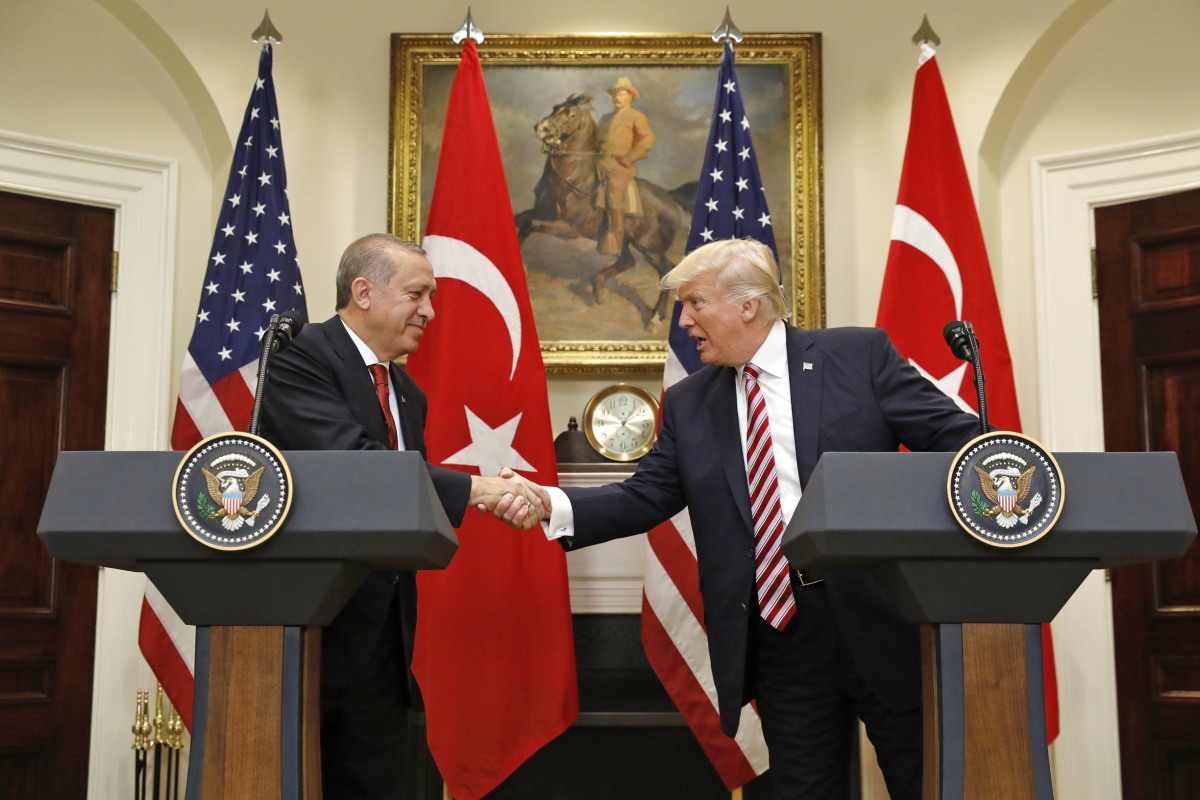
In the last four years, the Adalet ve Kalkınma Partisi Justice and Development Party, Turkey’s ruling party government, has maintained good relations with the United States, opting to put all their eggs in the same basket. Members of the AKP have sought to solve any and all issues occurring in U.S.-Turkey relations bilaterally through Erdoğan and Trump’s “personal relationship.”
The suit brought against Halkbank in New York dominated the agenda of the Trump-Erdoğan “problem-solving” meetings. In a book published last month, John Bolton, who served as Trump’s national security advisor for about two years, detailed the contents of the meetings between the two leaders.
According to Bolton, Trump always communicated to Erdoğan his willingness to find a way to resolve the Halkbank issue. If it was not merely a “bump” in the road to normalizing U.S.-Turkey relations, what happened to the Halkbank case that made it difficult to ignore?
Halkbank’s former general manager Mehmet Hakan Atilla, once lauded by the AKP government and its press as the man who could single-handedly eliminate deficits, was convicted on the basis of decisions issued by the AKP’s Council of Ministers and inaccurate statements by Reza Zarrab, who granted himself Turkish citizenship, as well as by fugitive supporters of the Fethullahçı Terör Örgütü (called the Fethullah Terrorist Organisation by the government, and also known as the Gülen movement).
Throughout the trial which lasted a month and a half, Halkbank’s former deputy head Hakan Atilla maintained his innocence and claimed that he did not accept any bribes either from Zarrab or from former police officers supporting FETÖ. He was, in the end, convicted.
After serving his sentence and returning to Turkey, Atilla did not give up and appealed the decision in hopes of proving his innocence and restoring his name.
During Attila’s appeal, Geoffrey S. Berman—the U.S. attorney for the Southern District of New York, appointed by Trump and notoriously close to Republicans—filed a suit against Halkbank itself. And yet, hadn’t Trump given clear signals that this issue was taken care of? This is the first way in which Trump “deceived” Erdoğan. Although subsequently Berman was forced to resign by the Trump administration, the harm was done and a case against Halkbank opened.
Convicted by a Trump Appointee
Let’s get to the second way Trump deceived Erdoğan. The Court of Appeals made a ruling on Attila’s case this week. The author of the ruling was Richard Sullivan, again a Trump appointee, close to Republicans, supposed to “solve the problem.” He was appointed for the first time to a District Court by Republican President George W. Bush. Two years ago, Donald Trump appointed him to the Court of Appeals.
Sullivan, a judge appointed by Trump, upheld Atilla’s conviction. The decision was a disaster for Attila. The judges ruled that the “district court provided a partially erroneous jury instruction.” However, they also ruled that the erroneous instruction did not affect the outcome of the case and the guilty verdict for Attila.
This situation shows the following. The Court of Appeals possessed the means to acquit Atilla, overturn the conviction and order a re-trial. However, the Court did not use this “tool” and chose to uphold Atilla’s conviction.
Halkbank Case Will Set a Precedent
The Court of Appeals’ decision to uphold the verdict is alarming for Halkbank. The indictment in Attila’s case and the suit against Halkbank as a corporation bear a striking resemblance. The decision to be issued in the Halkbank case in March 2021 already seems clear in this context.
In brief, in the most important issue in U.S.-Turkey relations, Halkbank, Trump was not able to keep his promises, made during calls with Erdoğan.
Trump has join the ranks of leaders who have deceived Erdoğan: Obama and the issue of the Kurdish Democratic Union Party-People’s Protection Units; the Israeli prime minister and Palestine; the FETÖ movement in Turkey; the Kurdistan Workers’ Party; and the settlement process and Assad in Syria.

Leave a Reply
You must be logged in to post a comment.